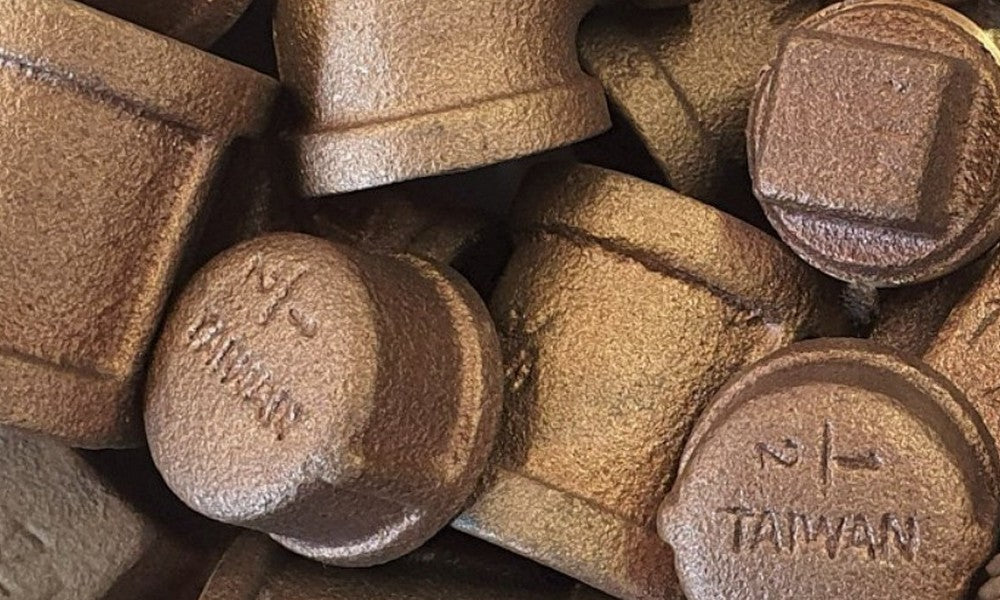Bronze is strong and malleable and does not crack as easily as something like iron. It has a rough, porous exterior with small cavities in the surface that come from the molding process. However, bronze alloys with select additives can hold a polish and are not as abrasive. Bronze resists cracking and corrosion. There are tons of uses for bronze valves in particular, including safety relief, flow direction control, shutting off flow, and more. Always check for lead-free bronze valves and fittings when using for potable water.
But bronze has not changed very much over the years and so it is both very reliable and very good at what it does and it's worth considering how bronze fittings fare against other options, both more and less expensive.
Compared to brass?
Bronze and brass are used for many similar applications: plumbing, heating, pneumatic, and marine. Both are made using copper and that is about where the similarities end.
Brass has obviously not been around as long as bronze, but it is equally versatile and malleable. You can use it for casting, forging, heat extrude, or cold draw. Brass is very corrosion-resistant, like bronze, but is susceptible to breaking down when exposed to high levels of chlorine.
Because brass has much lower levels of lead, it is the go-to material for use with potable water. It's very useful in airline applications and for natural gas, although we no longer sell brass fittings used for gas because our focus is on pumping liquids and air.
The bottom line? Brass fittings can be a much more effective solution than bronze fittings and with large supplies of it around, it can be easier on the wallet. Still, bronze wins out for marine applications.
Compared to PVC?
For plumbers, PVC fittings are the cost-effective option. No one material will suit every job. While bronze is a very strong, versatile option, it also has advantages when it comes to temperature, pressure, and chemical handling. Bronze has a high maximum working temperature, with a melting point rated at 865°C and a max recommended service temperature of 204°C. PVC can't do that.
Need bronze for higher temperatures? It performs better there too. Bronze doesn't freeze and crack, like PVC can, thanks to its natural structural integrity.
Bronze isn't going to be the best bet for strong acids and like chemicals, but it can be used with weaker acids and caustics, common solvents, alcohols, oils including food and fuel oils, and salts and brines including calcium chloride and, of course, sea water.
Like other metals, bronze is excellent for conducting thermal and electrical energy. It is also not sensitive to UV.
All up, bronze is a prized metal that still has a spot in modern applications if you're willing to pay a bit more than PVC and brass.

